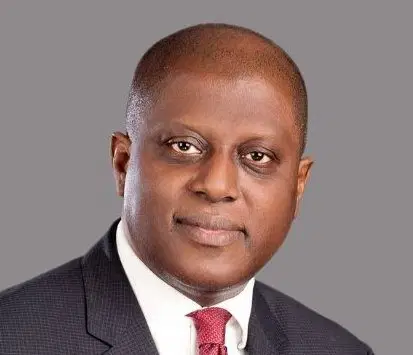Mr. Olayemi Cardoso, Governor of the Central Bank of Nigeria (CBN), has hailed the proposed African Monetary Institute (AMI) as vital to the establishment of a unified currency in Africa.
He addressed the 5th African Union Extraordinary Session of the Specialised Technical Committee on Finance, Monetary Affairs, Economic Planning, and Integration: Ministerial Meeting, which took place today in Abuja.
In his words, “As we converge to study and adopt these crucial papers, we are reminded of the central role that AMI and the African Financing Stability Mechanism (AFSM) will play in supporting macroeconomic convergence, financial stability, and economic resilience across our continent.
“The establishment of the AMI will mark a significant milestone in Africa’s journey towards a common currency, while the AFSM represents a proactive approach to safeguarding financial stability in an increasingly uncertain global economic landscape.”
The Governor also stated that, in line with efforts to construct a stronger and more robust African financial architecture, the CBN had adopted major changes aimed at promoting stability, resilience, and growth.
Mr. Wale Edun, Minister of Finance and Coordinating Minister of the Economy, stated in his address that the African economy has faced significant challenges in recent years, including poverty and inequality, reliance on aid, global competitiveness, periodic debt crises, our economy’s small size, and climate change, among others.
He stated, “You will agree with me that we can overcome these challenges collectively by building a strong economy and using reforms to strengthen the economic management system of our continent, beginning with the unanimous endorsement of the resolutions presented before us for the adoption of the Heads of States and Government, and Nigeria remains eternally grateful to all, especially our formidable team of experts who have all harmonised the divergent views and interests.”
“As you are all aware, Excellencies, debt refinancing requirements are high, liquidity is expensive, and access to capital markets for emerging markets (EMs) is restricted.
“Africa’s state debt has grown dramatically over time, becoming more nonconcessional and short-term. As a result, the debt servicing load has increased, as have the financing concerns. As you may have seen, since 2011, the average maturity of Africa’s external debt has decreased from about 23 years to approximately 17 years in 2022.”
Participants were informed that “Nigeria is not only ready to host the African Monetary Institute (AMI), which is the precursor to the operationalisation of the African Central Bank (ACB) but poised to partner and collaborate with all in making these great initiatives work for the attainment and enhancement of the Agenda 2063 and our dream of ‘the Africa We Want”
As I conclude, Excellencies and Distinguished Participants, the initiative by the African Development Bank Group (AfDB) to develop the African Financing Stability Mechanism (AFSM) as a tool for coping with African debt refinancing problems, which has remained the main headache of the managers of the African economy, is highly commendable, and I take this opportunity to invite my colleagues to make this history happen in the historic city of Abuja by recommending these resolutions for the Prof. Kevin Urama, Vice President and Chief Economist of the African Development Bank, stated that the high cost of debt servicing is exacerbating the continent’s debt burden.
His remarks were this: “Africa’saverage public debt ratio,whichrose from 54.5 percent of GDP in 2019 to 64 percent in 2020, stabilised at around 63.5 percent from 2021-23.”











